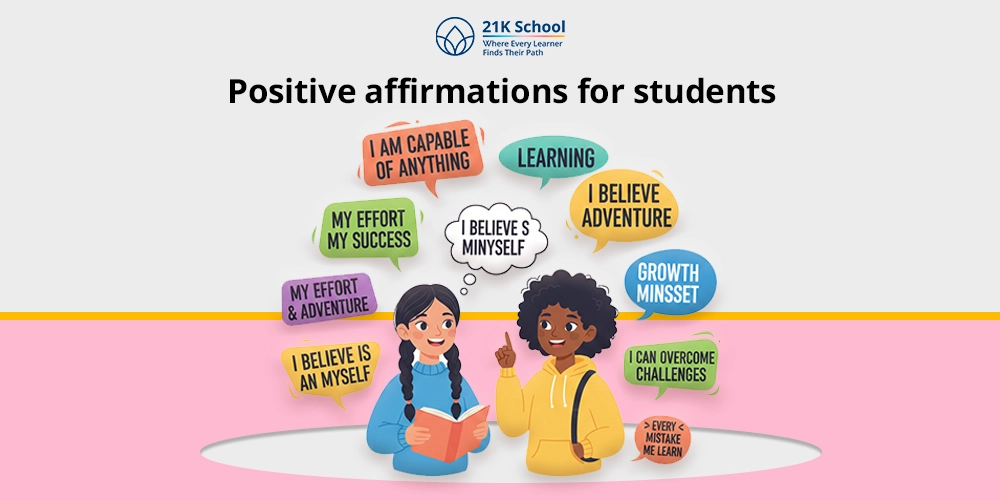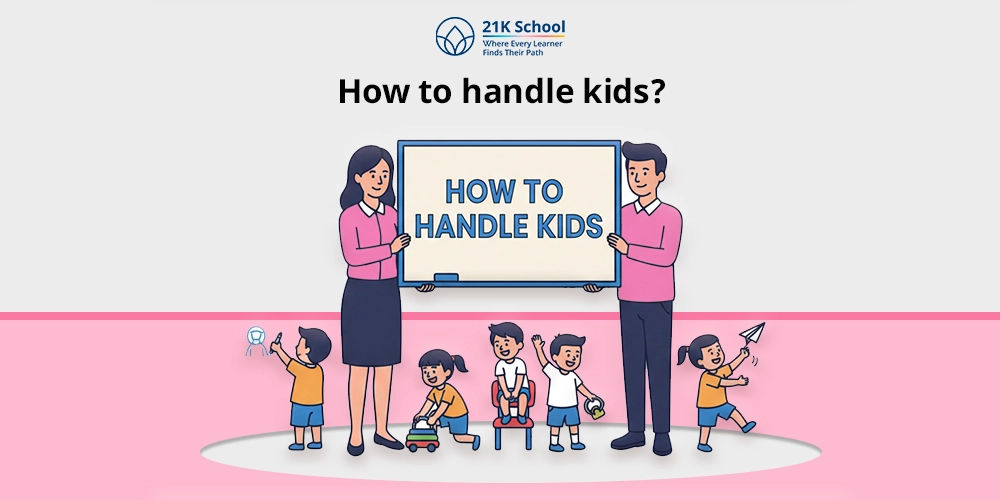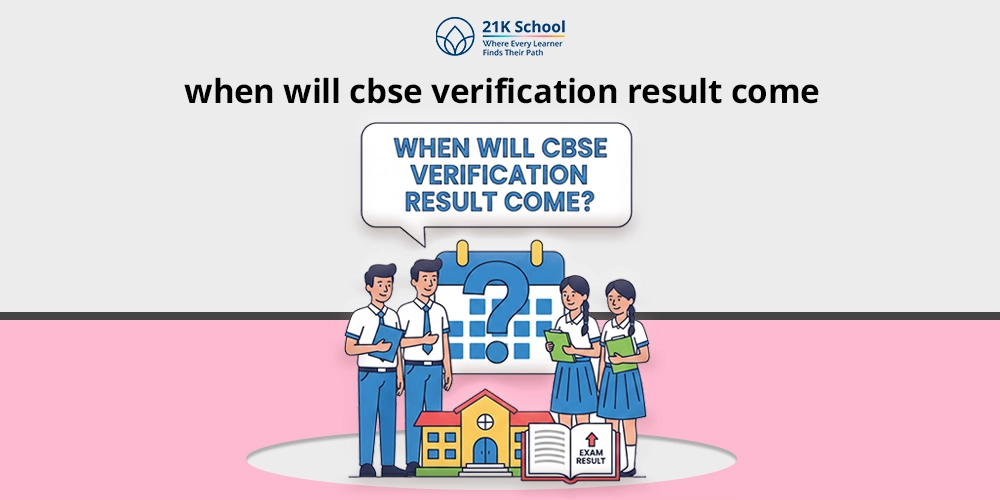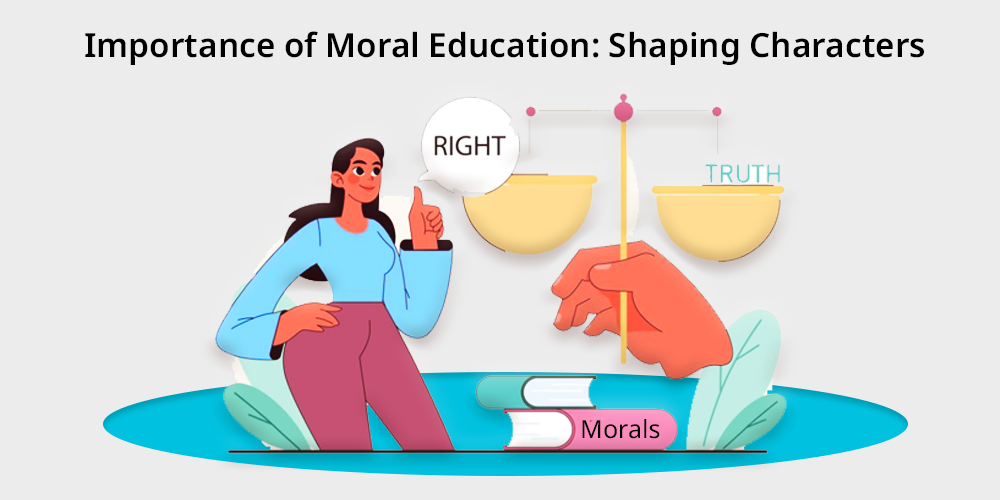
Have you ever wondered what truly defines a person’s character? It’s not just about academic success and technological advancement.
A person’s character is defined by the values they carry and the choices they make when no one is watching.
Other than academic scores and career goals Moral Education often takes the center stage to shape students characters.
It’s not about teaching with a modern or traditional approach, it’s all about nurturing empathy, honesty, responsibility and respect.
Let’s understand why moral education is so important for every age group which ultimately shapes a better society.
Contents
- What is Moral Education?
- Importance Of Moral Education in Students Life
- 1. Character Development
- 2. Responsibility
- 3. Conflict Resolution
- 4. Ethical Decision Making
- 5. Long Term Wellbeing
- 6. Understanding Moral Values
- 7. Boost Self-confidence
- 8. Building Positive Relationships
- 9. Civic Responsibility
- 10. Emotional Intelligence
- 11. Honesty
- 12. Respect
- 13. Social Cohesion
- 14. Empathy
- 15. Creating a Safe and Inclusive Environment
- Examples of Moral Education in Practice
- Key Takeaway!
What is Moral Education?
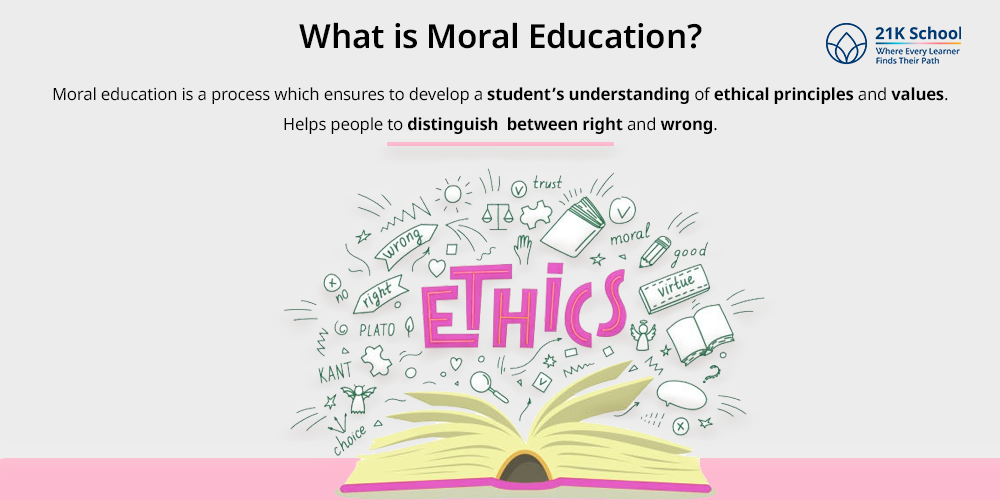
Moral education is a process which ensures to develop a student’s understanding of ethical principles and values.
It helps people to distinguish between right and wrong. It focuses on qualities like empathy, integrity, responsibility, and respect etc.
Unlike other kinds of development like learning or cognitive development, moral education focuses on emotional and social growth of kids.
To improve social emotional learning, students can learn how do child socialize with each other ?
In simple words, it helps students navigate life’s complexities with a sound moral compass.
For example, a student helps his classmate who is struggling with homework. This teaches the value of kindness and empathy.
Read how to do homework fast, proven homework tips for parents and teachers.
Importance Of Moral Education in Students Life
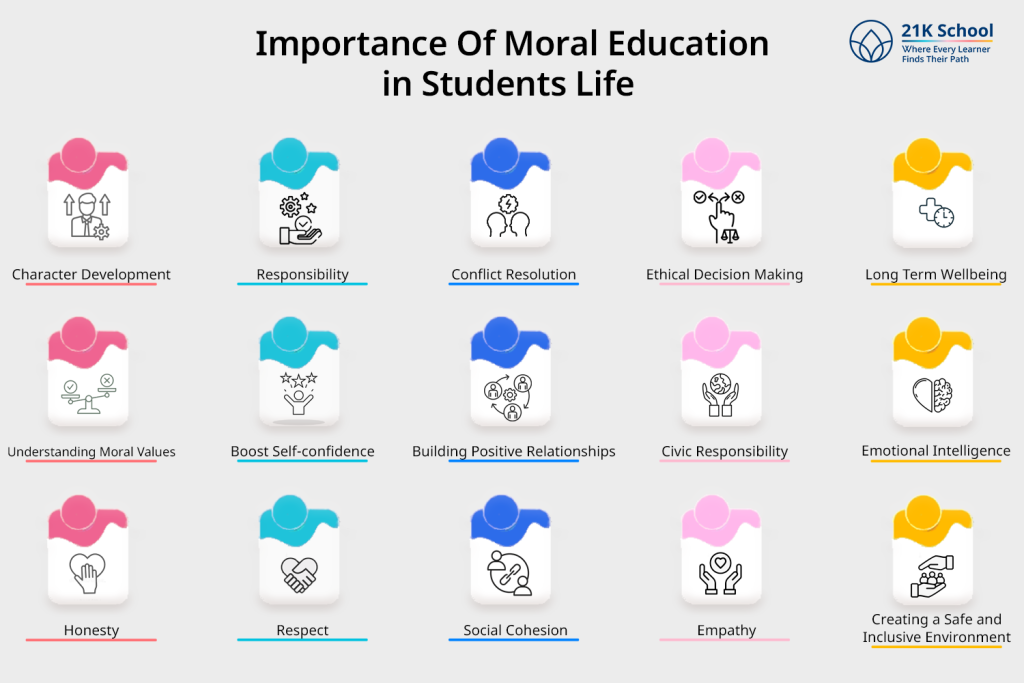
Moral education is an essential part of students’ lives because it guides them to develop a strong character, learn essential life skills, and become responsible members of society.
Here’s a more detailed look at the importance of moral education:
1. Character Development
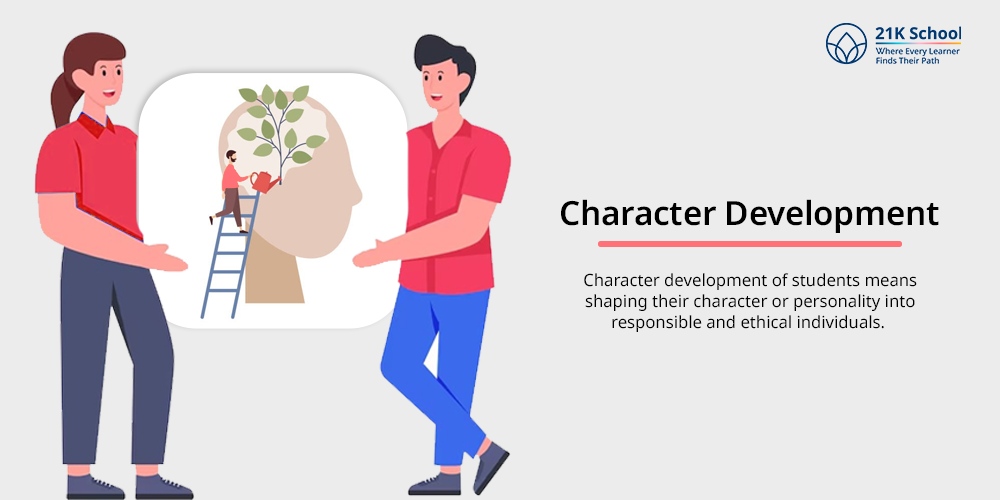
Character development of students means shaping their character or personality into responsible and ethical individuals. Moral education individuals into people of principle.
It helps students discern right from wrong, fosters empathy and respect, and promotes positive interactions. The process is not for sometime it’s for whole life.
2. Responsibility
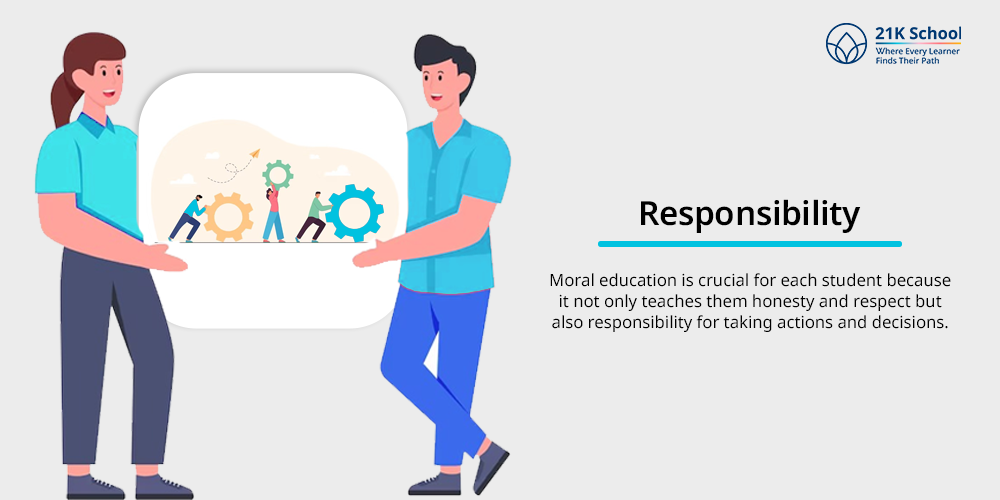
Moral education is crucial for each student because it not only teaches them honesty and respect but also responsibility for taking actions and decisions.
These values help them grow into kind, fair, and responsible people who do the right thing. Remember the sense of responsibility goes beyond the individual behavior.
It contributes positively to society. Students can become proactive and dependable members of society.
3. Conflict Resolution
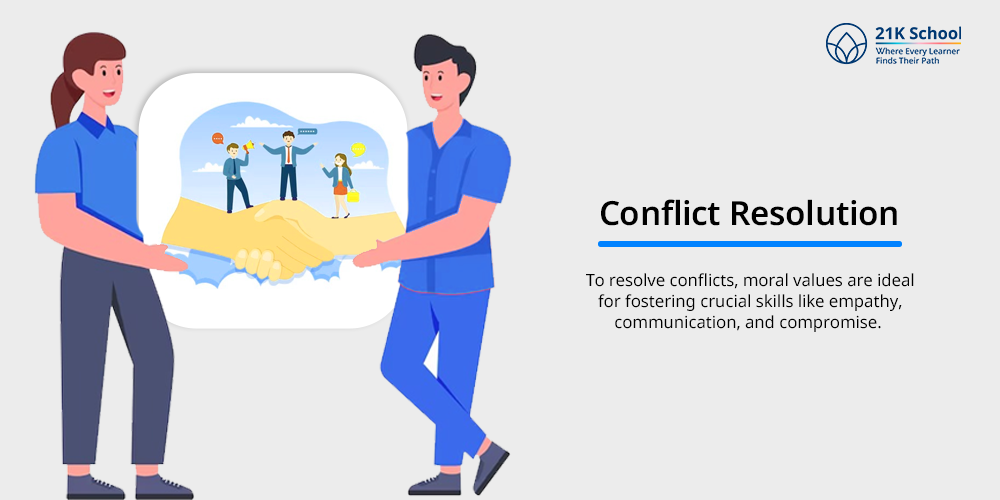
To resolve conflicts, moral values are ideal for fostering crucial skills like empathy, communication, and compromise.
It directly benefits communication skills, developing empathy, building strong relationships, and creating a safe and positive learning environment.
This skill is essential in building peaceful relationships and communities.
4. Ethical Decision Making
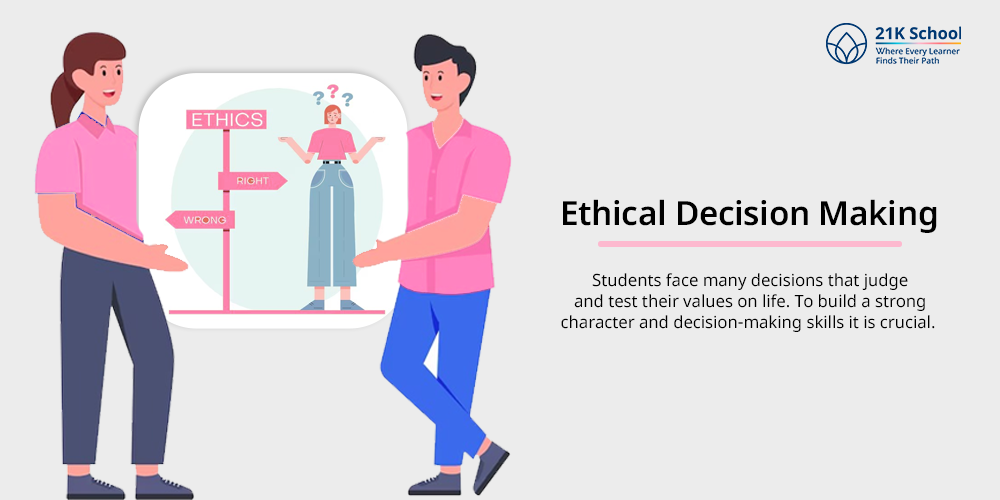
Students face many decisions that judge and test their values on life. To build a strong character and decision-making skills it is crucial.
Ethical decision making in moral education fosters teaching to discern right from wrong, develop empathy, and understand the impact of their actions on others and society.
These kinds of values help in building confidence and future professional roles where integrity matters.
5. Long Term Wellbeing
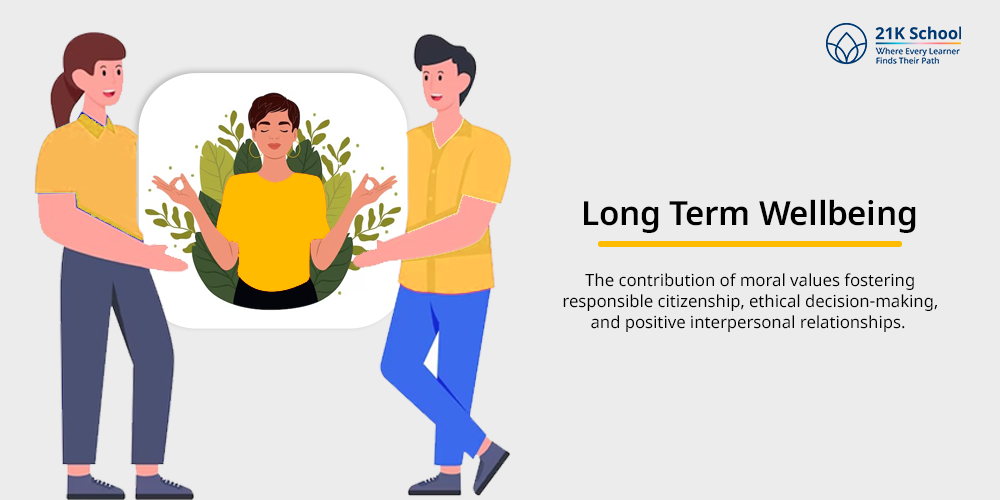
The contribution of moral values fostering responsible citizenship, ethical decision-making, and positive interpersonal relationships.
For healthier relationships and a balanced life it develops a strong moral compass, navigates ethical dilemmas, and builds resilience.
6. Understanding Moral Values
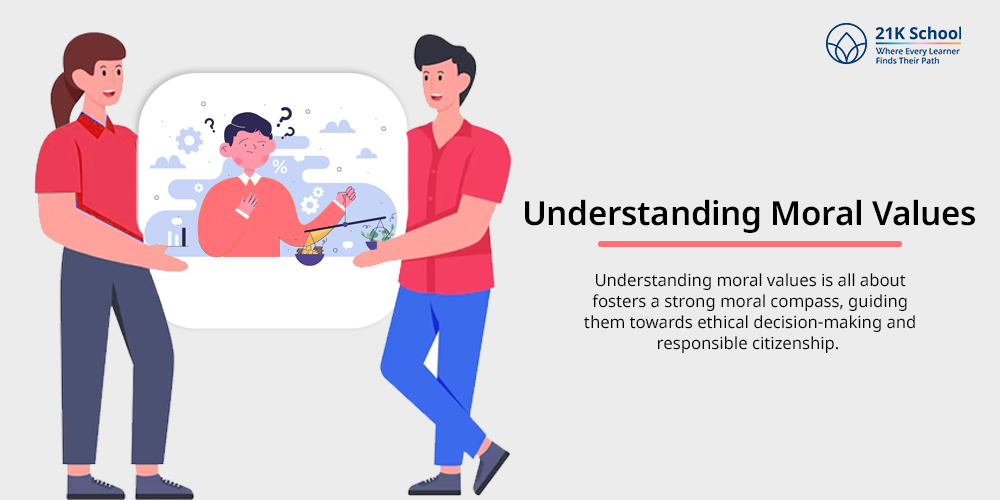
Understanding moral values is all about fosters a strong moral compass, guiding them towards ethical decision-making and responsible citizenship.
Some core moral values like justice, fairness, kindness, and respect builds a strong ethical foundation in kids.
These values not only help in understanding the world properly but also promote student engagement in a thoughtful and principled manner.
7. Boost Self-confidence
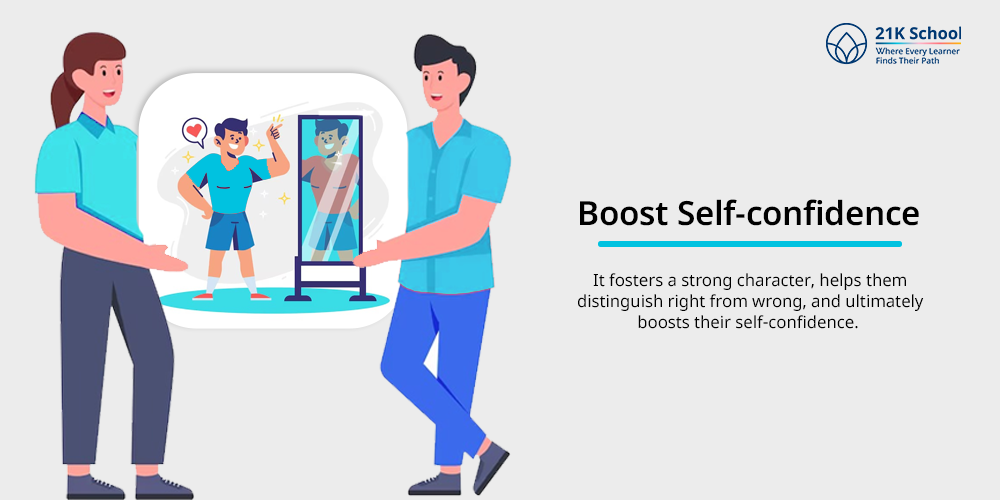
Moral education helps students in boosting their self-confidence in home, school and community.
It fosters a strong character, helps them distinguish right from wrong, and ultimately boosts their self-confidence.
This kind of education helps students recognize their strengths and work on their weaknesses, which fosters resilience and a positive self-image.
8. Building Positive Relationships
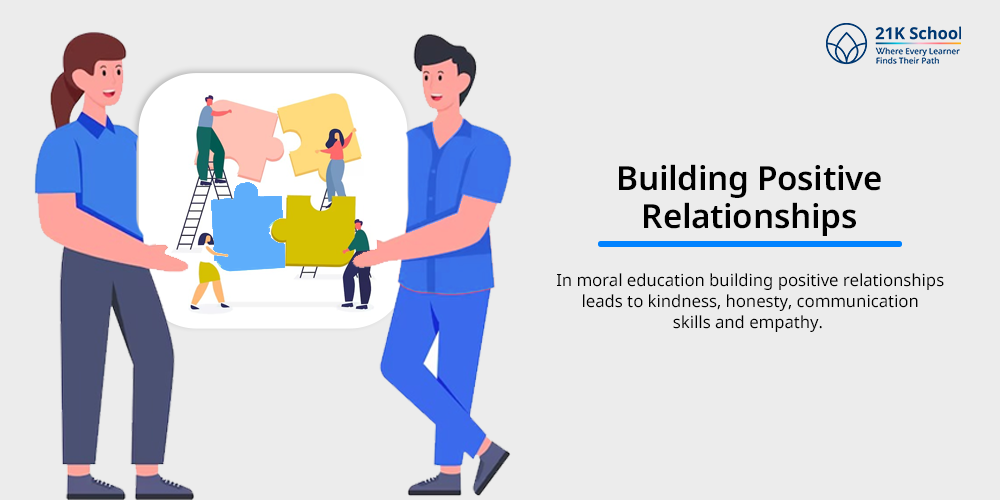
In moral education building positive relationships leads to kindness, honesty, communication skills and empathy.
With positive interactions students can understand diverse perspectives, resolve conflicts peacefully, and build trust.
This leads to strong connections between people and more harmonious communities.
9. Civic Responsibility
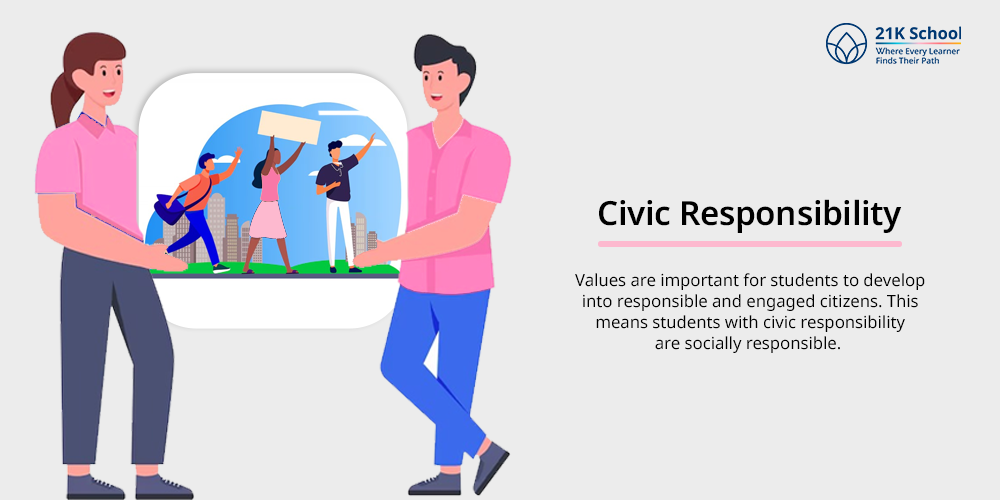
Values are important for students to develop into responsible and engaged citizens. This means students with civic responsibility are socially responsible.
It fosters ethical behavior, empathy, and a sense of civic duty which empower them to contribute positively to society.
10. Emotional Intelligence

Emotional intelligence is the ability to understand, manage, and effectively express one’s own emotions and to understand and influence the emotions of others.
High emotional intelligence directly helps in better relationships, improved communication, and enhanced problem-solving skills.
All these are crucial for navigating social situations and making ethical decisions.
11. Honesty
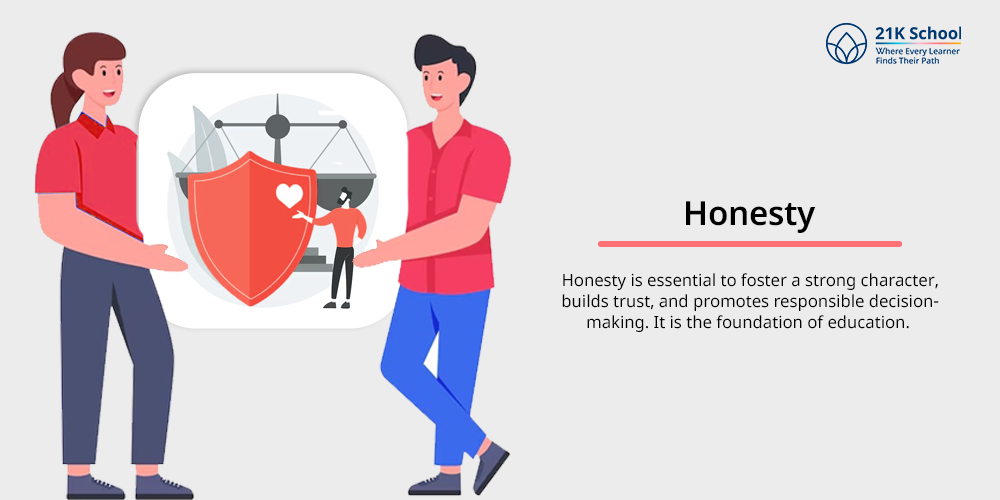
Honesty is essential to foster a strong character, builds trust, and promotes responsible decision-making. It is the foundation of education.
It helps in building relationships, developing integrity, and contributing to a just and harmonious society.
Here students are taught to value truthfulness in their words and actions.
12. Respect
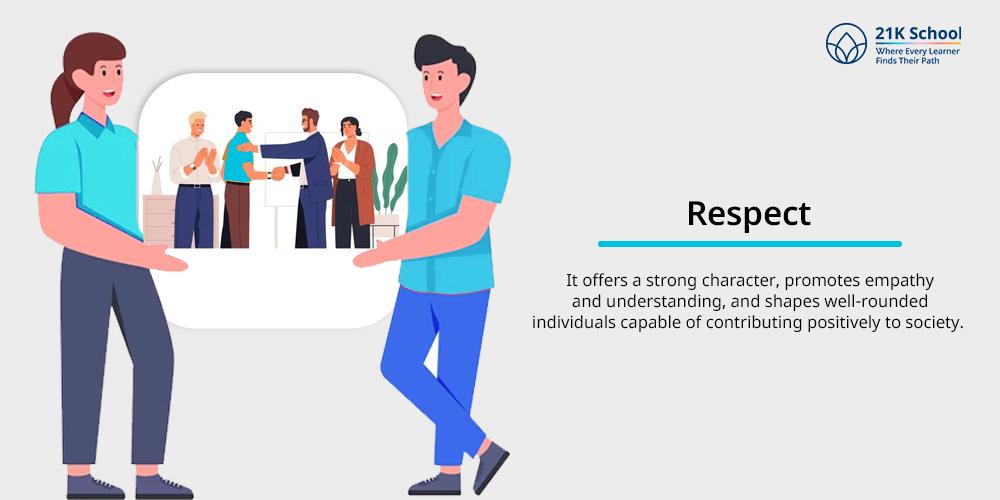
Respect is one of the important parts to enhance moral values. It is inclusive for today’s diverse environment.
It offers a strong character, promotes empathy and understanding, and shapes well-rounded individuals capable of contributing positively to society.
As a parent you have concerns like can kids are learning new skills here’s how to develop empathy in a child ?
13. Social Cohesion
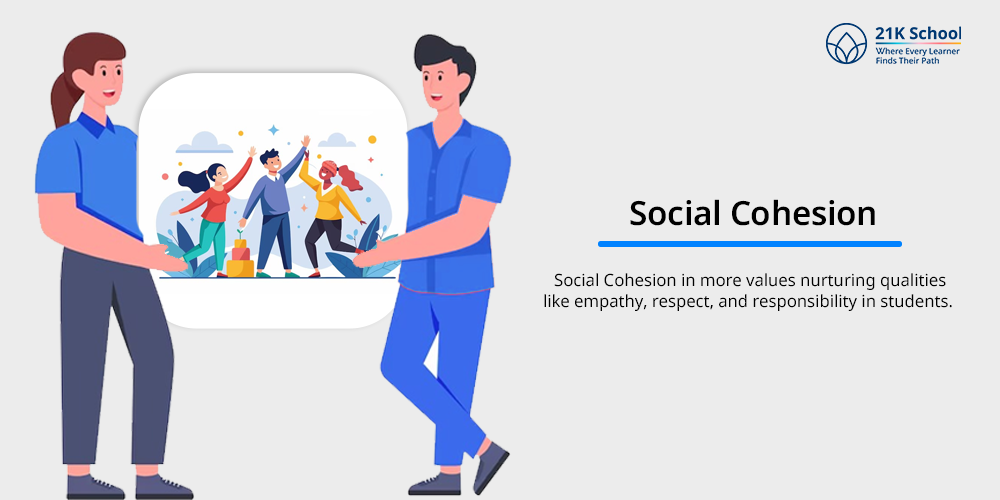
Social Cohesion in more values nurturing qualities like empathy, respect, and responsibility in students.
It fosters unity, cooperation, all of which are critical to social cohesion. It bridges gaps between people, reduces prejudice, and promotes collective well-being.
14. Empathy
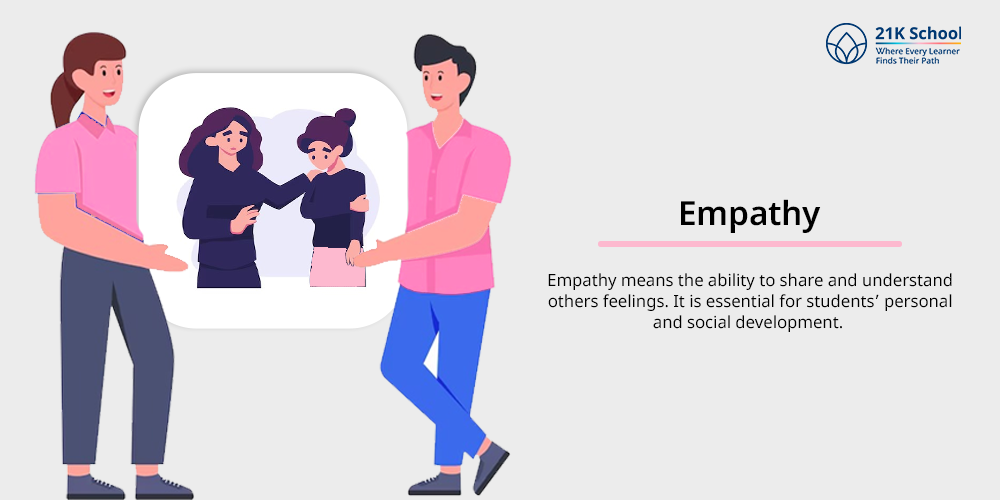
Empathy means the ability to share and understand others feelings. It is essential for students’ personal and social development.
This leads to better relationships, responsible citizenship, and a more inclusive society.
Students with empathy contribute to a more caring and understanding society.
15. Creating a Safe and Inclusive Environment
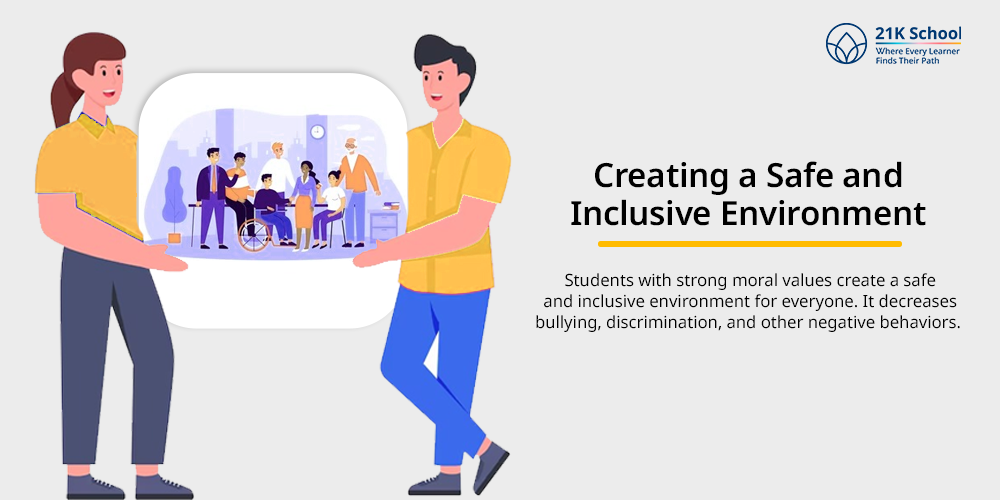
Students with strong moral values create a safe and inclusive environment for everyone. It decreases bullying, discrimination, and other negative behaviors.
A moral framework promotes inclusivity and ensures that every child feels safe and valued.
Read the importance of inclusive education and ensure a better environment.
Examples of Moral Education in Practice
Examples are ideal especially for kids who are at the learning stage of moral development. Let’s elaborate some common examples are:
- Using Literature and Stories: By understanding books and movies characters can discuss their moral choices, their actions’ consequences, and the underlying values they represent.
- Integrating Moral Values into Daily Life: Teachers and parents can integrate moral values into daily life desired behaviors, such as being respectful and honest. By creating classroom environments better that foster kindness and cooperation.
- Student Mediation Programs: These kinds of programs empower students to help resolve conflicts among students constructively.
Key Takeaway!
Moral education is not extra learning. It is the foundation upon which responsible, empathetic, and capable individuals are built.
By focusing on character development, ethical decision-making, and emotional intelligence, moral education shapes students into not just good learners but good people.
It empowers them to lead with integrity, care deeply for others, and contribute meaningfully to society. Investing in moral education is a better, more compassionate future.
It’s time to shape the future of each individual.

